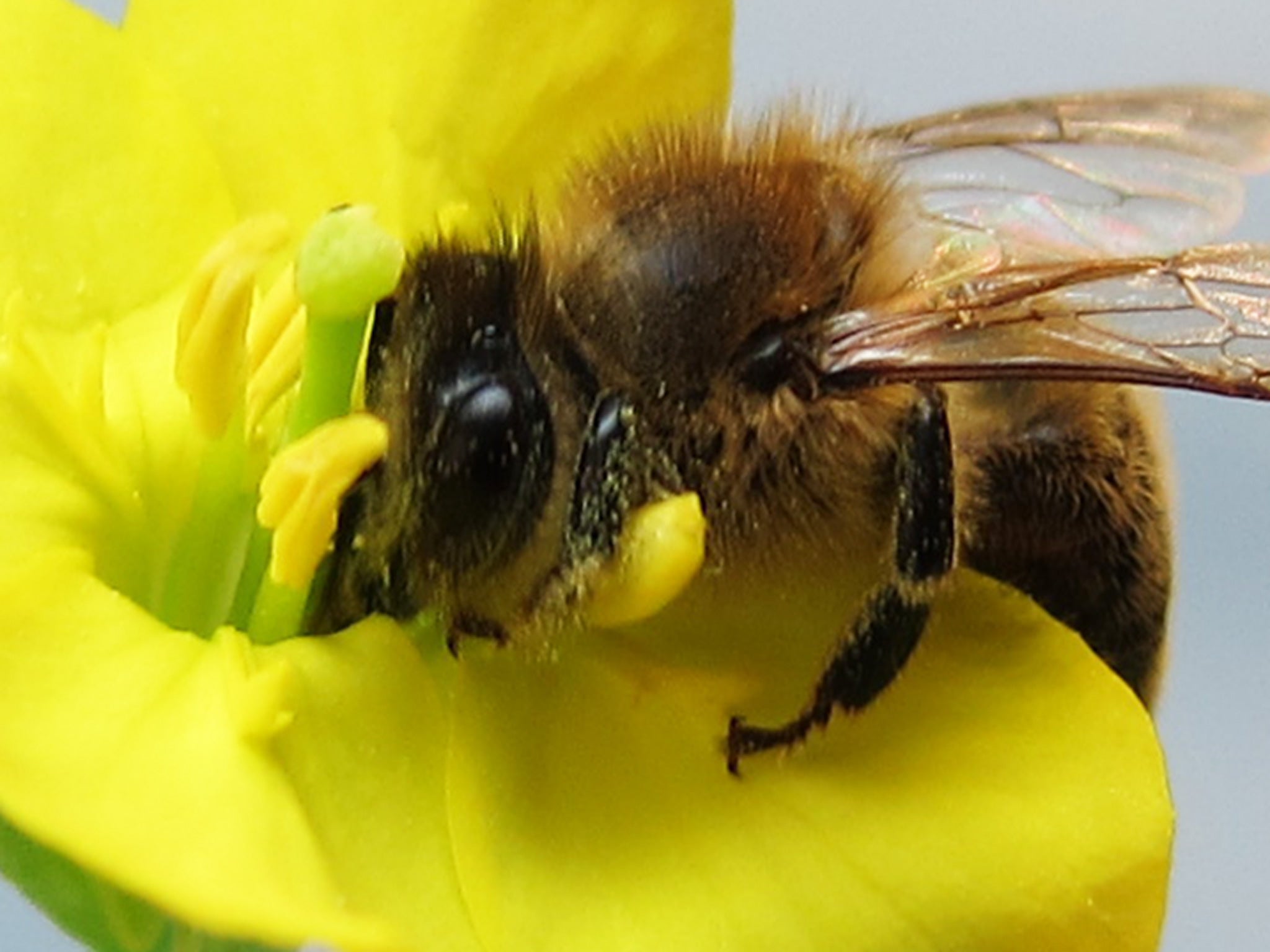Revealed: traffic fumes are confusing bees in their hunt for food
Gases emitted by diesel engines mask floral odours that honeybees use to navigate

Your support helps us to tell the story
From reproductive rights to climate change to Big Tech, The Independent is on the ground when the story is developing. Whether it's investigating the financials of Elon Musk's pro-Trump PAC or producing our latest documentary, 'The A Word', which shines a light on the American women fighting for reproductive rights, we know how important it is to parse out the facts from the messaging.
At such a critical moment in US history, we need reporters on the ground. Your donation allows us to keep sending journalists to speak to both sides of the story.
The Independent is trusted by Americans across the entire political spectrum. And unlike many other quality news outlets, we choose not to lock Americans out of our reporting and analysis with paywalls. We believe quality journalism should be available to everyone, paid for by those who can afford it.
Your support makes all the difference.Traffic fumes can interfere with the critical odour cues used by honeybees to forage for food according to the first detailed study of how pollution can affect a bee's ability to find nectar and pollen.
Tests show that the gases emitted by diesel engines mask the complex chemistry of floral odours that honeybees remember and use to navigate their way through their feeding range.
Further tests found that honeybees are no longer able to recognise the floral odours they use to find food once the scents are mixed with diesel gases in the concentrations typically found near Britain's roadsides.
The findings show how the ability of honeybees to collect food and build up stores of honey is being compromised by one of several "stressors" in their environment, which may also include parasitic infections and pesticides, scientists said.
"This is the first clear research looking at the environment in which honeybees work," said Tracey Newman of the University of Southampton, who led the study published in the journal Scientific Reports.
"Our results suggest that diesel exhaust pollution alters the components of a synthetic floral odour blend, which affects the honeybee's recognition of the odour," Dr Newman said.
"This could have serious detrimental effects on the number of honeybee colonies and pollination activity…anything that causes bees to forage for longer will have a cost," she said.
A number of studies have found that honeybees are in decline, probably as a result a combination of factors, including the spread of the parasitic varroa mite, the widespread use of pesticides and pollution.
The global economic value of the pollination of flowering crops - such as fruit trees and oilseed rape - by bees and other insects is estimated to be £135 billion a year. In the UK alone the value is estimated at £430m a year.
Although the research was carried out on diesel fumes, the scientists said that petrol exhausts may also have a detrimental effect both on honeybees and bumblebees, which also use floral odours to navigate when foraging for food.
The study involved mixing air containing eight chemicals found in the odour of oilseed rape - a crop heavily reliant on honeybee pollination - with air containing diesel exhaust.
A sensitive analysis of the odour spectrum found that with a minute of the two samples being mixed, six of the eight oilseed rape chemicals were significantly reduced in volume while two disappeared completely, possibly because they reacted with nitrogen oxides (NOx) in the exhaust fumes.
Honeybees that were trained to recognise the complex mix of odour chemicals from oilseed rape were unable to do so once it had been contaminated with diesel fumes, even in the sort of concentrations found by a roadside, the scientists found.
"Honeybees have a sensitive sense of smell and an exceptional ability to learn and memorise new odours," Dr Newman said.
"NOx gases represent some of the most reactive gases produced from diesel combustion and other fossil fuels, but the emissions limits for nitrogen dioxide are regularly exceeded, especially in urban areas," she said.
Professor Guy Poppy of Southampton University said that the research is the first to provide a detailed mechanism that can explain the anecdotal evidence suggesting that traffic fumes can affect honeybees.
"The results indicate that NOx gases - particularly nitrogen dioxide - may be capable to disrupting the odour recognition process that honeybees rely on for locating floral food resources," Professor Poppy said.
"Honeybees use the whole range of chemicals found in a floral blend to discriminate between different blends, and the results suggest that some chemicals in a blend may be more important than others," he said.
Join our commenting forum
Join thought-provoking conversations, follow other Independent readers and see their replies
Comments